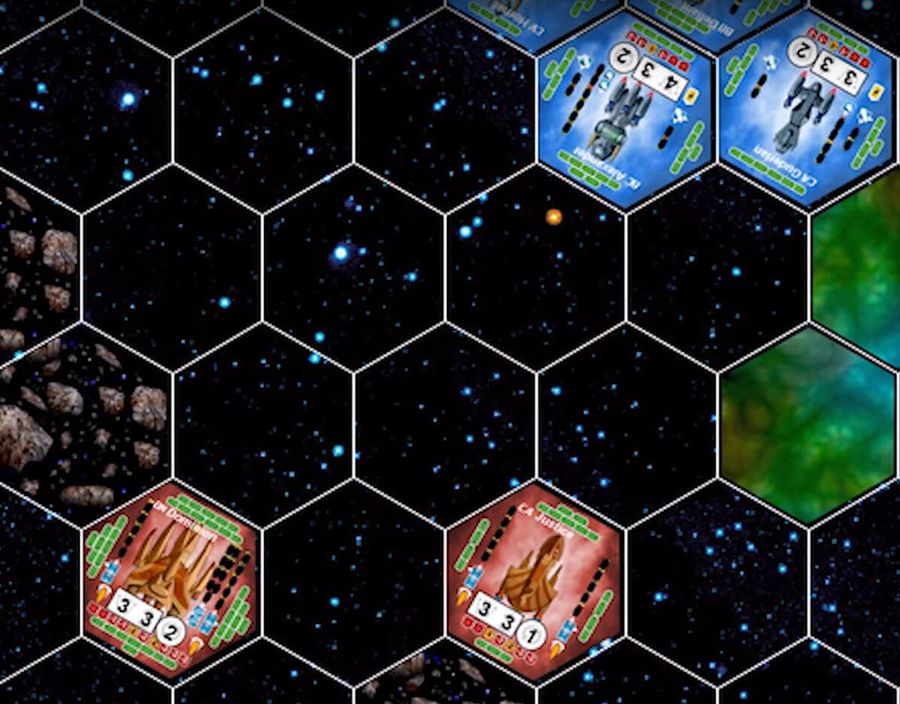
Chances Are There's a Game For It
Meeple mountain put up an excellent post on wargames for hobby boardgamers. It does an excellent job of explaining the general types of wargames, both in terms of level of abstraction (tactical, etc) as well as type of pieces (miniatures, hex, block, though some tactical wargames use blocks as well instead of counters). It also gives an outstanding introduction for how to learn and figure out a game.
Finally, it wraps up in some advice for choosing a started game, and here is where I think it needs some more elaboration. In fairness, this is already a long and thorough article, and I can’t disagree that one of the first things you should do is consider the theme – if you’re not interested in phalanx warfare but do like WW2 then it doesn’t matter how awesome Commands & Colors: Ancients is, you want to break out something else.
That said, even within genres there are certainly better and worse choices for an “introductory” game. Rules-light matters. So does time. Most important though is that you can have a rules-light game that is still very, very fiddly. In short, a good intro game will not have the multiple volumes of rules like, say, Starfleet Battles (or the more streamlined successor, Federation Commander), or Advanced Squad Leader. It can be played in two hours or less, though that can be stretched a bit.
Space
Let’s take the traditional 4x game, in space.
Fantasy Flight has put out some outstanding games, but the last thing I’d throw a newbie into is Twilight Imperium. I haven’t had a chance to play it yet but it requires three players without rules mods, has a estimated hour per player time frame, and from what I have personally observed, half again that or more is not unusual unless all the players are experts at the rules.
Space Empires 4x on the other hand can be played at or under two hours on the smaller maps, with more advanced rules added as desired.
On the tactical/space battle side, I loved Starfleet Battles years ago, and have a good chunk of the simpler, but still crunchy, Federation Commander rules, but Talon has them beat hands down for simplicity of rules (1 large book vs less than 16 pages of rules and much simpler status tracking). If you absolutely must try “Trek” – go with Federation Commander instead of Starfleet Battles. There’s an excellent review here at BGG.
Strategy / Operational
I don’t think I’ve got enough chops to comment here but I have found the rules for Twilight Struggle, mentioned in the article, to be easy to learn and an excellent game. I’m looking forward to my copy of Fire in the Lake as well.
You can also find and print rules for Traveller-related games like The Fifth Frontier War, or play them via Vassal. It’s worth noting that the entirety of the classic traveller rule set including the related boardgames is available on DVD for $30 or so at Far Future Enterprises.
Tactical/Hex
I cut my teeth on Starship Troopers, Panzerblitz, Afrika Korps, and less-obviously hex games like Storm over Arnheim and Awful Green Things from Outer Space.
Here, theme really matters, but if the silliness of Awful Green Things appeals to you, it’s a tight and excellent game of boarding actions. You can also find more serious rules in the aforementioned Traveller collection for Snapshot and Azhanti High Lightning.
For more straight-up “clashing armies” wargames though, I’d start with one of two basic systems.
The first, if futuristic power armor, missile tanks, and the occasional cybernetic AI-driven behemoth of a killing machine appeal to you for theme, give Ogre (and GEV) a try. It’s available in several editions at a reasonable price, and because the core game as it stands now started out as a microgame and it’s semi-standalone microgame expansion, the rules are very simple. Despite the simple rules, the game itself has a lot of depth. The theme has had a ton of fluff develop around it over the decades, and that game is so beloved that it nearly was a catastrophic success- and as a result a year late – for Steve Jackson Games when issued as a “designers edition” kickstarter.
It also has a computer version available around October 5th of 2017 on Steam.
For anything else from Greco-Roman Phalanx battles to WW1 and 2, with Napoleonic combat and Revolutionary war and two different fantasy systems (Westeros and Battle Lore) appeal to you, there is an entire range of games that use a common and very easy to learn ruleset. An incomplete list of games using the same core rules is available here.
It relies on a hand of command cards that allow you to move units by type, by region of the board, or to employ various special actions and reactions. The limit of the card hands is a workable abstraction for the fog of war preventing commands from going out or being acted on, or the overall commander knowing what is happening well enough to respond, yet at the same time gives you different ways to respond to what is in front of you. The combat mechanics are simple, and there’s not a lot of fiddliness in actual play, and what is learned in one game (ancients) largely translates to others. At the same time, each game is tweaked so that Memoir 44, for example, is not just “C&C:A with a paint job.” – it actually plays differently.
From there, if you want to delve into other systems like Combat Commander or ASL, or anything else, have at it.
